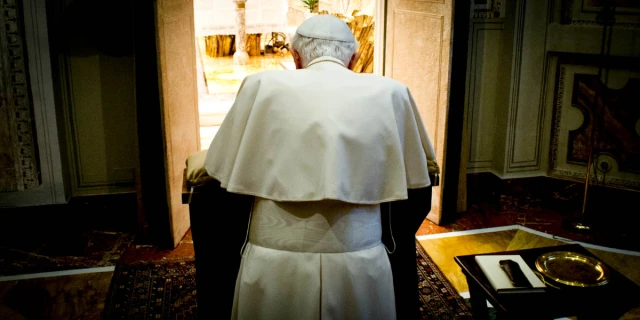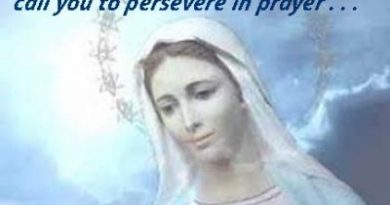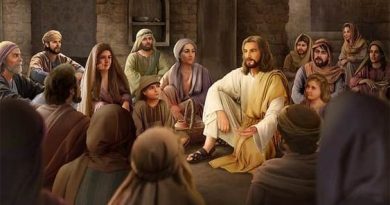Pope Benedict’s Spiritual Testament
In 691 words Pope Benedict XVI poured out his spirit in his Spiritual Testament. As one would expect from such writing, Benedict’s Spiritual Testament offers some interesting points on which one could reflect.
Like Saint Augustine in his Confessions, Pope Benedict is making a confessio laudis or a confession of praise to God. He says: When, at this late hour of my life, I look back on the decades I have wandered through, I see first of all how much reason I have to give thanks. The first addressee to whom Pope Benedict feels he has to thank is God Himself. For Benedict God is the giver of all good gifts. He thanks him for giving him the great gift of life and also the other gift of guidance through life’s difficult moments. God was there to rescue him in difficult situations and showed him his shining face. The most important lesson which Pope Benedict learned was that, as Saint Paul says in his letter to the Romans: We know that in everything God works for good with those who love him, who are called according to his purpose (Rom 8:28).
Thus confesses Pope Benedict: Above all, I thank God Himself, the giver of all good gifts, who has given me life and guided me through all kinds of confusion; who has always picked me up when I began to slip, who has always given me anew the light of his countenance. In retrospect, I see and understand that even the dark and arduous stretches of this path were for my salvation and that He guided me well in those very stretches.
After thanking God Pope Benedict continues his confession laudis, that is his confession of praise, by praising his parents. He recalls with inspiring gratitude how much his parents did for him. To begin with they brought him into the world, gave a comfortable shelter and reared him up in love. Pope Benedict praises his father for having educated him in faith whereas he praised his mother for instilling in him kindness and devotion.
He writes: I thank my parents, who gave me life in difficult times and prepared a wonderful home for me with their love, which shines through all my days as a bright light until today. My father’s clear-sighted faith taught us brothers and sisters to believe and stood firm as a guide in the midst of all my scientific knowledge; my mother’s heartfelt piety and great kindness remain a legacy for which I cannot thank her enough.
Moreover, Pope Benedict thanked as well his sister who took great care of him whilst his brother counselled him and taught him to be determined and also helped him have that sense of humour. Benedict writes: My sister has served me selflessly and full of kind concern for decades; my brother has always paved the way for me with the clear-sightedness of his judgements, with his powerful determination, and with the cheerfulness of his heart; without this ever-new going ahead and going along, I would not have been able to find the right path.
Then, Benedict’s confessio laudis acknowledges the role which friends, co-workers and students played in his life. He said: I thank God from the bottom of my heart for the many friends, men and women, whom He has always placed at my side; for the co-workers at all stages of my path; for the teachers and students He has given me. I gratefully entrust them all to His goodness.
Furthermore, Benedict thanks God for being a German who lived in his much beloved country of Germany. As a German he not only shows gratitude to God for his compatriots’ loving concern for him but also prayed to God so that all German people never ever waver from their Christian faith. He confesses: And I would like to thank the Lord for my beautiful home in the Bavarian foothills of the Alps, in which I was able to see the splendour of the Creator Himself shining through time and again. I thank the people of my homeland for allowing me to experience the beauty of faith time and again. I pray that our country will remain a country of faith and I ask you, dear compatriots, not to let your faith be distracted.
Benedict thanks God for the beauty of the hosting country Italy, and most notably Rome, who welcomed him with open arms. He asked forgiveness for those whom he might have hurt. He writes: Finally, I thank God for all the beauty I was able to experience during the various stages of my journey, but especially in Rome and in Italy, which has become my second home. I ask for forgiveness from the bottom of my heart from all those whom I have wronged in some way.
To all Christians to whom he was called to serve as Pope, Benedict encourages them: Stand firm in the faith! Do not be confused! Life experienced showed taught him that true natural science and historical research strengthen the faith not go against it. He said: Often it seems as if science – on the one hand, the natural sciences; on the other, historical research (especially the exegesis of the Holy Scriptures) – has irrefutable insights to offer that are contrary to the Catholic faith. I have witnessed from times long past the changes in natural science and have seen how apparent certainties against the faith vanished, proving themselves not to be science but philosophical interpretations only apparently belonging to science.
The scholar Benedict cautions that in such a confusion the surest way is and always remains dialogue between theology and science thanks to which faith became genuinely faith. He said:
It is in dialogue with the natural sciences that faith has learned to understand the limits of the scope of its affirmations and thus its own specificity. Additionally, Benedict admits that apparent solid theories were simply hypotheses which fell like dominos. He writes: For 60 years now, I have accompanied the path of theology, especially biblical studies, and have seen seemingly unshakeable theses collapse with the changing generations, which turned out to be mere hypotheses: the liberal generation (Harnack, Jülicher, etc.), the existentialist generation (Bultmann, etc.), the Marxist generation.
The good out of this confusion was that the Christian faith became clearer and solid, particularly when one is talking about Jesus Christ and His Church. He said: I have seen, and see, how, out of the tangle of hypotheses, the reasonableness of faith has emerged and is emerging anew. Jesus Christ is truly the Way, the Truth, and the Life – and the Church, in all her shortcomings, is truly His Body.
This simple humble worker in the vineyard of the Lord ends his Spiritual Testament by asking us to pray for him to be saved, notwithstanding his sins and faults. He also vouches his commitment to intercede for all those people whom the Lord has entrusted to his care. He said: Finally, I humbly ask: pray for me, so that the Lord may admit me to the eternal dwellings, despite all my sins and shortcomings. For all those entrusted to me, my heartfelt prayer goes out day after day.
Such an outstanding spiritual testament is, by itself, a sound reason why Pope Benedict XVI should be eventually declared a Doctor of the Church once he is beatified and canonized. Let us all earnestly pray for this to happen soon. Santo Subito, sainthood now, a saint right away!
Fr Mario Attard OFM Cap





